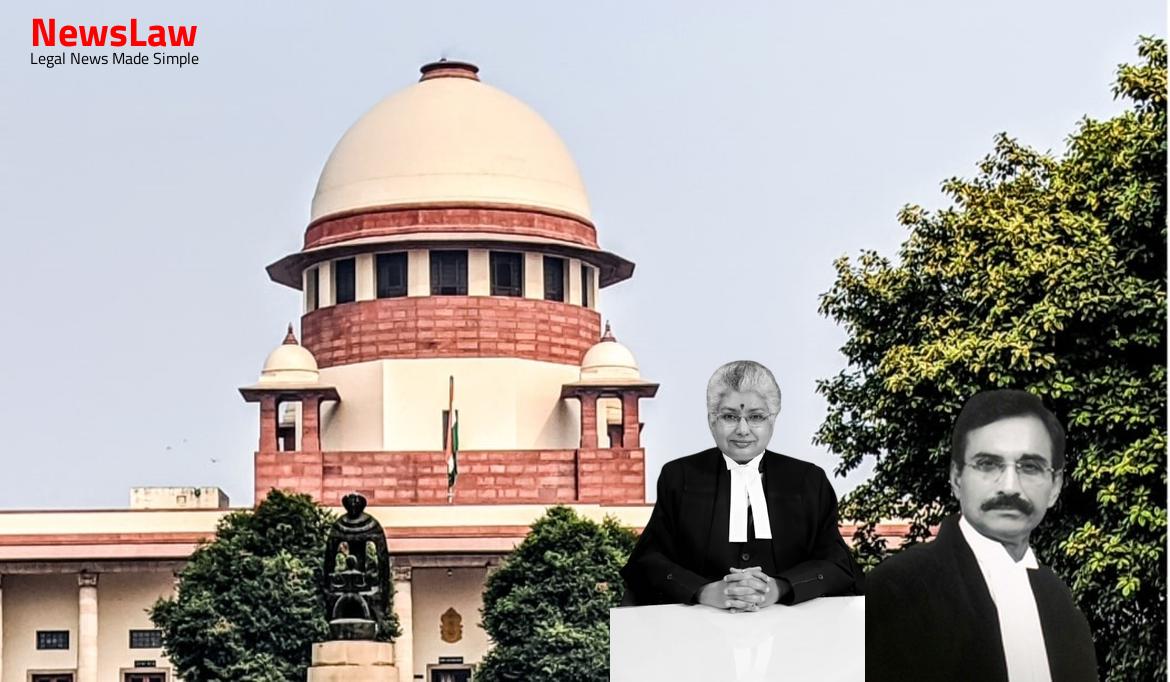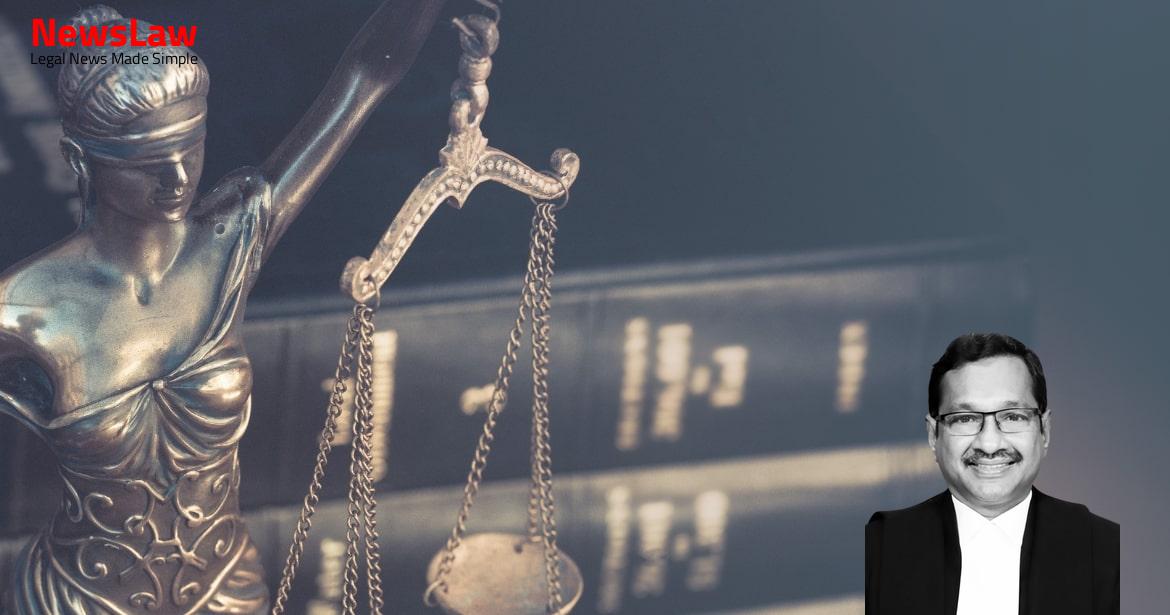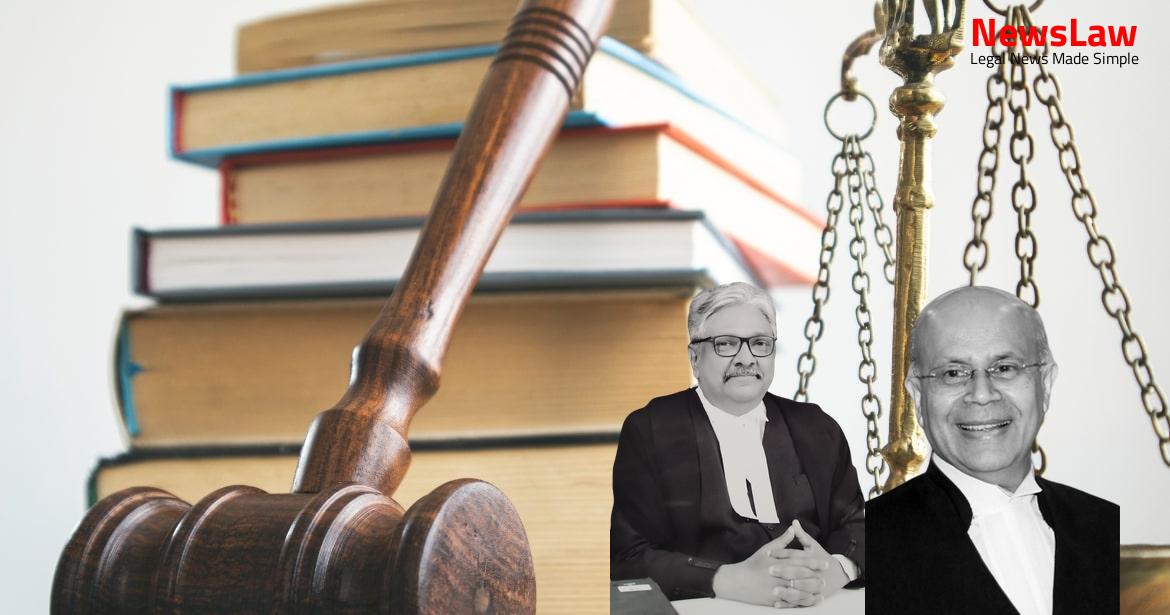In a recent legal case, the court delved into the complex issue of imposing the death penalty, analyzing the balance between reformation possibilities and retributive justice. The nuanced legal examination sheds light on the intricate considerations that shape sentencing decisions in capital punishment cases.
Facts
- Petitioners convicted for offences under Sections 302 and 449 read with Section 34 of the IPC and sentenced to death for offence under Section 302 read with Section 34, IPC.
- High Court upheld conviction and sentence except for the 10-year rigorous imprisonment under Section 449 read with Section 34, IPC.
- Criminal Appeal dismissed by the Supreme Court noting the heinous nature of the crimes against children and society’s harmony.
- Conviction and death sentence of Petitioners affirmed, while the death sentence on two others was reduced to life imprisonment by the High Court.
- High Court refused to interfere with the death sentence for the Petitioners due to the extreme depravity of the murders.
- Out of the 11 accused, 7 were acquitted, and 4 individuals were convicted by the trial court.
- The Petitioners, along with others, assaulted Haneef Khan in the mosque with sharp-edged weapons, leading to his death.
- Inquest of the bodies of the deceased persons was prepared and post-mortem conducted.
- Gufran Khan and Imran Khan were also attacked and died in front of their house.
- The Petitioners entered the house of Haneef Khan and murdered his wife Kasuman Bibi and their four sons.
- PW-2, Jainub Khatoon, and others present were threatened by the Petitioners.
- Gaffar Khan, upon reaching the village the next day, saw the dead bodies of the family and was informed about the crime.
- The police were informed by the chowkidar of the village.
- PW-13, Shambhu Nath Singh, recorded the statement of the informant, Gaffar Khan.
- The Petitioners and others were charged for various offences under the IPC.
- The Appeal filed by the Petitioners against conviction and sentence was dismissed by the Court.
Also Read: Landmark Legal Analysis on Culpability in Honour Crimes
Arguments
- Clothing of Petitioners not seized, no splatter marks found at the scene
- Only tangi recovered, no other alleged weapons seized
- Witness did not see murder, locked herself out of fear
- Error in judgment as it relied on a charge under Section 380, IPC leading to acquittal by trial court
- Affidavits show emotional ties with family and community members, indicating potential for rehabilitation
- No evidence links Petitioners to the death of Haneef Khan’s family
- Argued that Petitioners should not have been convicted due to prosecution errors
- Petitioners attempted to confess but not permitted by Investigating Officer
- Satisfactory conduct during incarceration as per Jail Superintendent
- Death sentence questioned due to lack of criminal antecedents and possibility of reformation
- PW-5, the Imam of the mosque, testified against the Petitioners.
- Ms. Prerna Singh, representing the State, opposed the arguments made by Mr. C.U. Singh.
- She contended that the conviction of the Petitioners should be upheld.
Also Read: Reversal of High Court’s Decision on Auction Sale Confirmation
Analysis
- The contention of the Petitioners regarding the plausibility of reformation and rehabilitation not being taken into account by the trial court, High Court, and Supreme Court while sentencing them to death.
- The court will only review a decision if there is a glaring omission or patent mistake due to judicial fallibility.
- The medical evidence and eyewitness testimonies support the guilt of the Petitioners in the murders inside the house.
- The manner of the crime, being premeditated and gory, justifies the death sentence in this rarest of rare cases.
- The Court does not re-appreciate concurrent findings of fact recorded by lower courts during review petitions.
- The scope and ambit of the Supreme Court’s jurisdiction in reviewing petitions is defined, including grounds for entertaining review petitions.
- The State has a duty to establish that there is no possibility of reformation and rehabilitation of the accused.
- The criteria and limitations for filing review petitions in civil and criminal proceedings are outlined in the Supreme Court Rules, 2013.
- The Supreme Court Rules, 2013, are framed under Article 145 of the Constitution.
- Article 137 of the Constitution grants the Supreme Court the authority to review any judgment pronounced by it.
- This review is subject to the provisions of any law enacted by Parliament or rules made under Article 145 of the Constitution of India.
- Review petitioners cannot seek re-appreciation of the evidence on record while hearing review petitions
- An error which is not self-evident and has to be detected by a process of reasoning cannot be considered an error apparent on the face of the record justifying the Court to exercise its power of review
- Important to bring material about the convict’s conduct in jail, conduct outside jail, medical evidence about mental make-up, contact with family, etc., during the sentencing process
- Before imposing death sentence, the Court must ensure that it is imperative and that there is no possibility of reform or rehabilitation of the convict
- The Court should give the convict an effective opportunity to be heard on the question of sentence
- Probability of reformation and rehabilitation of the convict must be seriously considered before awarding the death sentence
- Prosecution has the obligation to prove through evidence that the convict cannot be reformed or rehabilitated
- Mitigating circumstances, including the probability of the accused being reformed and rehabilitated, should be taken into account before sentencing to death
- Courts have a duty to elicit relevant information and consider factors regarding the possibility of reformation, even if the accused remains silent.
- The death sentence is traditionally imposed by courts based on the brutality of the crime, without considering the possibility of reformation.
- There is no evidence to prove that the petitioners are beyond reformation.
- Factors such as the socio-economic background, lack of criminal history, family and community support, and conduct during incarceration all suggest the possibility of reformation.
- Considering these factors, it cannot be conclusively said that the petitioners are beyond reformation, making the imposition of the death sentence not imperative.
Also Read: Interest Compensation Dispute in Property Demolition Case
Decision
- Review Petition is disposed of.
- Petitioners are sentenced to life imprisonment for a period of 30 years.
- The sentence of death imposed on the Petitioners is converted to life imprisonment.
- Sentence imposed on the Petitioners is converted from death to life.
Case Title: MOFIL KHAN Vs. THE STATE OF JHARKHAND (2021 INSC 791)
Case Number: R.P.(Crl.) No.-000641-000641 / 2015



